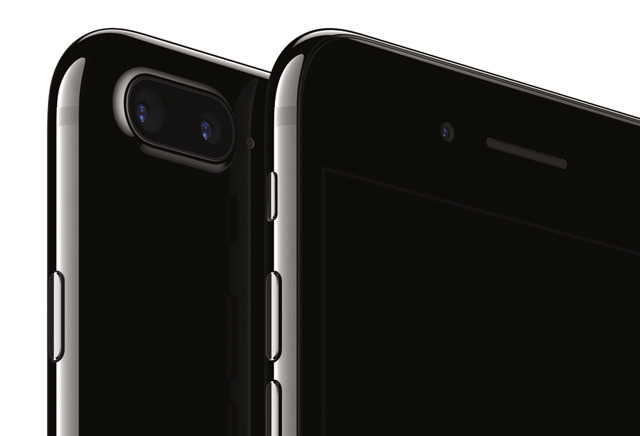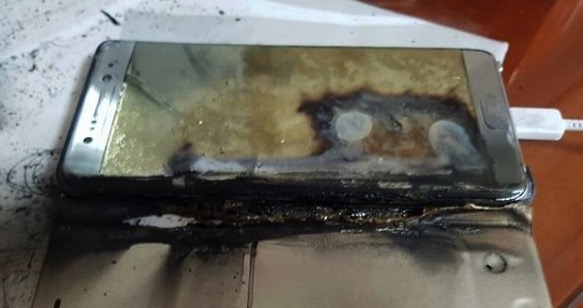The timing of Samsung's Galaxy Note 7 phablet recall could be a boon for Apple and this Friday's debut of the iPhone 7 Plus, one analyst believes, as preorder lead times are said to be on pace with expectations.
Gene Munster of Piper Jaffray said the exploding battery issue with Samsung's competing Galaxy Note 7 could provide a "slight tailwind" for Apple and sales of the iPhone 7 Plus. The issue has ballooned into a public relations crisis for Samsung, as the company issued a global recall for the device just before its primary competitor, the iPhone 7 Plus, was announced.
"The recall couldn't have come at a better time for Apple and worse time for Samsung," Munster wrote.
AppleInsider confirmed earlier Monday that some American Airlines and Delta flights have been instructing passengers to power down all Samsung phones — not just the Note 7, despite the fact that it is believed to be the only affected device.
Last week, the Federal Aviation Administration issued a public statement warning passengers against using the Note 7 in flight, and the U.S. Consumer Product Safety Commission also urged all owners to turn off their device.
Separate from the Samsung issue, Munster has been tracking wait times on new iPhone 7 preorders.
As of Monday, customers who buy a 4.7-inch iPhone 7 are estimated to see a wait time of 1 to 2 weeks. That compares to waits of between 7 and 10 days at the same point for the iPhone 6 and iPhone 6s. But the iPhone 6s also had an extra week between its announcement and launch, providing Apple more time to build inventory and handle demand at launch.
Notably, the wait time for the iPhone 7 Plus as of Monday was just 2 to 3 weeks on average — Â less than the wait time of 3 to 4 weeks for the iPhone 6 Plus and iPhone 6s Plus during the same point in preorders.
Munster believes the shorter wait times for this year's iPhone 7 Plus could be representative of the fact that Apple is producing greater quantities of the 5.5-inch model this year. The camera on the iPhone 7 Plus is a unique dual-lens system with optical zoom, while the smaller iPhone 7 continues to feature a single-lens camera without optical zoom.
For the duration of the iPhone 7 product cycle, Munster believes Apple will see sales grow 11 percent over the iPhone 6s product cycle.
The first indication of iPhone 7 performance will have to wait until Apple's next quarterly earnings report in October. Though Apple has historically announced opening weekend sales for a new model's debut, the company revealed last week that it will end that practice this year, citing the fact that demand outstrips supply at launch.
For more, see AppleInsider's hands-on look at the iPhone 7 from last week's media briefing in San Francisco.
 Neil Hughes
Neil Hughes








-m.jpg)






 Brian Patterson
Brian Patterson
 Charles Martin
Charles Martin


 Malcolm Owen
Malcolm Owen
 William Gallagher
William Gallagher
 Christine McKee
Christine McKee
 Marko Zivkovic
Marko Zivkovic









38 Comments
Are there really enough people who are on the fence between Android and iOS for this to make a difference? Wouldn't think customers just wait for a replacement battery (they are getting cheap loaners from carriers, I've read), or get a different Samsung device, or different Android-based device, first?
The user and all related content has been deleted.
This "gift" is grossly overstated.
A product fault and recall harms the brand to the general population, the general population is less brand loyal. Thus switching behaviour from consumers will likely benefit other Android device makers first, then Apple second, due to platform stickiness.
However as Android is dilute, their per-vendor gains will be small in comparison to Apple.
The largest movements will be in price driven sales (fear) and mid-range sales (brand trust) to the general population, not buyers of flagship devices who are very brand loyal. (I.e. Sales of iPhone SE would see a gain, not so much the iPhone 7 Plus.)
Finally: Since the Samsung Note is purchased by the most avid fans of Samsung devices - waiting for a replacement device is not going to sway them to another vendor, they're far too deep in cognitive dissonance to associate the battery issue with the brand.
Man I wish this was a DED piece (no offense).